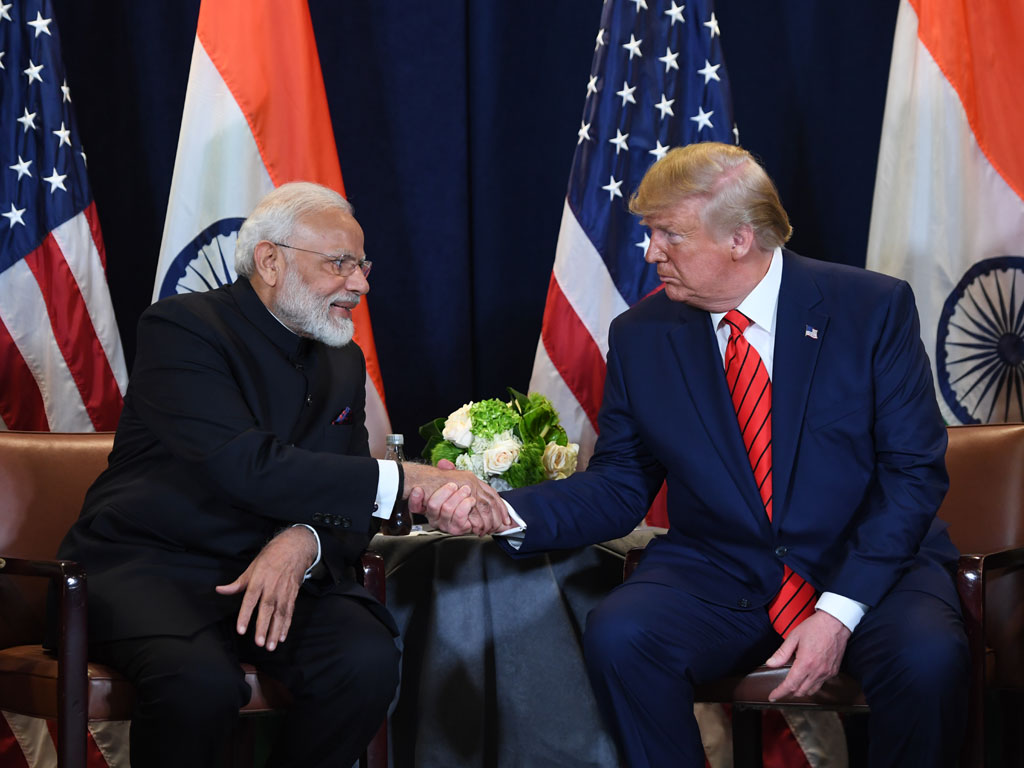Trump forces Modi's hand to lift ban on Anti-Malaria drug export
- President Trump forces India to partially lift ban on the export of the anti-malaria drug.
- China, Europe and South Korea recommend it as one of several treatments for Covid-19 patients
- A reported 47% of the U.S. supply of the drug last year came from India

In an emergency bid to procure supplies for the U.S, President Trump forces India to partially lift ban on the export of the anti-malaria drug. The announcement came with the US leading the number of infected globally with over 365,000 cases and 11,000 deaths.
Post fulfilling domestic demand requirements, exports of hydroxychloroquine and paracetamol will be permitted to the United States according to government officials dealing with the matter.
Hydroxychloroquine: Promising but not a done deal
Hydroxychloroquine, normally used to treat malaria, yielded promising yet inconclusive results in a small coronavirus trial. While Trump has said the drug is safe, it carries significant side effects. China, Europe and South Korea recommend it as one of several treatments for Covid-19 patients, while India itself advocates health-care workers take the drug regularly as a preventive measure.
Pakistan reportedly exported 300,000 tablets that were deemed “effective against coronavirus” to China, late February. After subsequent global praise, demand sky-rocketed in Pakistan where the drug disappeared from the markets. The Punjab Government approved the use of Hydroxychloroquine to treat critically ill COVID-19 patients.
While the drug has had some success, the reports are inconclusive and there have been reported deaths due to patients self-medicating with the anti-malaria drug post Trump’s praise of the drug. Some top scientists, including White House coronavirus task force member and Director of Infectious Diseases Anthony Fauci, have called reports that the drug might work “unreliable” and that more experimentation must be conducted before endorsing it as an effective treatment.
Trump Threatens India
Trump said at the White House on Monday he was unaware Indian Prime Minister Narendra Modi had banned the export of the drug, and noted he asked Modi to ensure supply. “If New Delhi declined to ship the medicine, the president said there may be retaliation.” India’s export ban had cut off a sizeable portion of U.S.’ supplies of the drugs.
A reported 47% of the U.S. supply of the drug last year came from India highlighting the importance of the ban-revocation to Trump. India’s Department of Pharmaceuticals and Ministry of External Affairs will decide on overseas allocations of the drug, an official said. India’s trade regulator, the Directorate General of Foreign Trade had on March 25 restricted the exports of hydroxychloroquine which through a notification on 6th April was overturned.
In addition to the supply, raw materials including active pharmaceutical ingredients used for drug formulation were added to the export list.
Indian officials expect domestic demand to exponentially increase with export numbers to be assessed periodically, citing internal requirement to be priority.
Indian foreign ministry spokesperson Anurag Srivastava also commented on the trade decision.
“In view of the humanitarian aspects of the pandemic, it has been decided that India would license paracetamol and HCQ in appropriate quantities to all our neighboring countries who are dependent on our capabilities. We will also be supplying these essential drugs to some nations who have been particularly badly affected by the pandemic”
Dynamic Changes to Post-Covid National Security Concerns
The unprecedented decision comes due to the strong bilateral trade relationship built during the Trump-Modi era but it also opens the door for all future post-pandemic national security decisions to incorporate food and medicinal needs of nations.
Bipul Chatterjee, who heads the CUTS Centre for International Trade, Economics and Environment in Jaipur, commented on the matter. “This decision was an ideal example of how trade equations will develop in the post-Covid-19 world, where food and medicines will increasingly become part of national security concerns,” Chatterjee said Tuesday. “In this case, India seems to have enough hydroxychloroquine to export on humanitarian grounds. But we may not see such generosity among nations for many drugs and food items going ahead.”























Comments
Comments are closed.